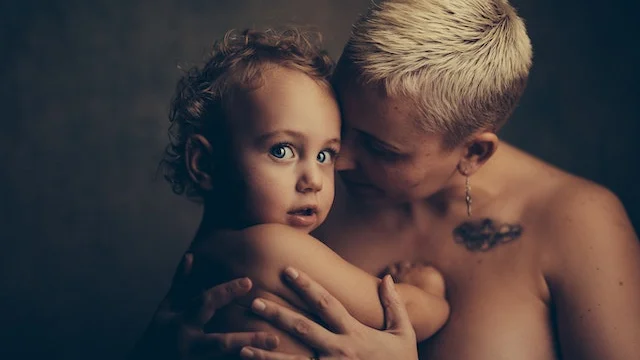In “Long-Term Treatment for Childhood Cancers,” you’ll discover the key aspects of managing and supporting children undergoing treatment for cancers such as leukemia, brain tumors, and neuroblastoma. These cancers often require years of treatment, and it’s important to be aware of the potential side effects of chemotherapy, including hair loss, lowered immunity, and delayed wound healing.
Throughout the treatment process, practicing good hygiene, maintaining a nutritious diet, engaging in physical activity, and receiving timely immunizations are crucial. Once treatment is complete, the focus shifts to re-establishing a healthy lifestyle and receiving regular follow-up care. By understanding the unique needs and challenges faced by childhood cancer patients, we can better support them on their journey to recovery.
Side Effects of Long-Term Treatment
Chemotherapy side effects
Chemotherapy is a common treatment option for childhood cancers such as leukemia, brain tumors, and neuroblastoma. While it is effective in combating cancer cells, it can also have some side effects. These side effects can vary depending on the type and dosage of chemotherapy drugs used.
Some common side effects include hair loss, slowed wound healing, lowered immunity, and anemia. It is important to be aware of these potential side effects and discuss them with your healthcare team.
Importance of personal hygiene
During cancer treatment, maintaining good personal hygiene is crucial to reduce the risk of infection. Chemotherapy can weaken the immune system, making you more susceptible to infections.
It is essential to practice good hygiene habits such as regularly washing your hands with soap and water, avoiding close contact with individuals who are sick, and wearing a mask when necessary. By adopting these practices, you can help protect yourself from harmful pathogens and maintain your overall health.
Diet and nutrition during treatment
Proper nutrition plays a vital role in supporting your overall health during cancer treatment. It is important to consume a well-balanced diet that includes sufficient calories and adequate protein, even if your appetite is reduced. Cancer and its treatments may cause changes in taste and appetite, but it is crucial to nourish your body to maintain energy levels and support healing.
Consult with a healthcare professional or registered dietitian to create a personalized meal plan that meets your specific needs.
Role of physical activity
While undergoing cancer treatment, it is essential to continue engaging in physical activity to support your physical well-being. Participating in activities such as calisthenics, walks, or other exercises can contribute to maintaining strength and mobility.
Physical activity can also help alleviate some of the side effects of treatment, such as fatigue and muscle weakness. Always consult with your healthcare team before starting any exercise regimen to ensure it is suitable for your current condition and treatment plan.
Re-establishing a Healthy Lifestyle
Keeping up with school and daily routines
After completing cancer treatment, it is important to focus on re-establishing a healthy lifestyle. This includes getting back into school and daily routines as much as possible. Returning to a routine can provide a sense of normalcy and stability, supporting your emotional well-being.
However, it is crucial to communicate with your school and teachers about any accommodations or adjustments you may need. They can work with you to create a plan that takes into account your unique circumstances and helps you transition back into academic life smoothly.
Maintaining a healthy diet
A nutritious diet continues to be important even after completing cancer treatment. Focus on consuming a variety of foods from all food groups to ensure you are getting the necessary nutrients.
Emphasize incorporating plenty of fruits, vegetables, whole grains, lean proteins, and healthy fats into your daily meals. These foods provide essential vitamins, minerals, and antioxidants, which can support your overall health and aid in recovery.
Emphasizing protein and vegetables
When planning your post-treatment diet, pay particular attention to including ample protein and vegetables. Protein is essential for repairing and rebuilding tissues in the body, which can be particularly beneficial after undergoing cancer treatment. Good sources of protein include lean meats, poultry, fish, beans, legumes, tofu, and dairy products.
Additionally, vegetables are packed with essential nutrients and fiber that can help support your immune system and overall health. Aim to include a variety of colorful vegetables in your meals to maximize their benefits.
Importance of moderate exercise
In addition to a healthy diet, regular exercise is crucial for maintaining overall well-being after cancer treatment. Engaging in moderate exercise can help improve strength, endurance, and cardiovascular health. It can also aid in managing any lingering side effects of treatment, such as fatigue and muscle weakness.
Find activities that you enjoy and incorporate them into your daily routine. Whether it’s walking, biking, swimming, or participating in sports, staying physically active can have numerous benefits for your physical and emotional health.
Daily Life for Childhood Cancer Patients
Importance of regular exercise
For childhood cancer patients, regular exercise is important for maintaining overall health and well-being. Exercise not only improves physical fitness but also boosts mood and promotes a sense of normalcy.
Engaging in activities such as walking, biking, playing sports, or dancing can be enjoyable and beneficial for children undergoing cancer treatment. Always consult with your healthcare team to determine the appropriate level of physical activity based on your child’s specific condition and treatment plan.
Maintaining a balanced diet
A balanced diet is crucial for childhood cancer patients to support their growth, development, and recovery. Encourage your child to eat a variety of foods from all food groups, focusing on fresh fruits, vegetables, whole grains, lean proteins, and healthy fats.
It is important to provide them with adequate nutrition, even if their appetite may be reduced due to treatment. Explore creative ways to make meals and snacks appealing and enjoyable for them, ensuring they receive essential nutrients for their overall health.
Staying well-hydrated
Staying hydrated is essential for childhood cancer patients, as it helps support bodily functions and aids in recovery. Encourage your child to drink plenty of fluids throughout the day, including water, herbal teas, and unsweetened juices.
Dehydration can make your child feel fatigued and affect their overall well-being, so it is important to monitor their fluid intake and remind them to drink regularly. If your child experiences difficulty drinking or swallowing, consult with your healthcare team for guidance on appropriate hydration strategies.
Considerations for immunizations
Immunizations are an important aspect of protecting childhood cancer patients from common viruses and diseases. However, the timing and effectiveness of immunizations can vary based on the child’s treatment protocol and immune status.
It is essential to consult with your child’s healthcare team to determine the appropriate immunization schedule and identify any potential contraindications or precautions. They will guide you in making informed decisions to ensure your child receives the necessary vaccinations while considering their individual needs and circumstances.
Personalized Treatment Plans
Side effects during treatment
Childhood cancer patients may experience varying side effects during treatment, depending on the specific cancer type, treatment modality, and individual factors. These side effects can range from mild discomfort to more severe complications.
Some common side effects include nausea, vomiting, fatigue, hair loss, changes in appetite, and emotional distress. It is important to communicate openly with your healthcare team about any side effects your child may be experiencing. They can provide support, medications, or other interventions to mitigate the impact of these side effects.
Minimizing side effects
While some side effects may be unavoidable, healthcare professionals work to minimize their impact on childhood cancer patients. Treatment plans are personalized to address the individual needs of each child, taking into account their diagnoses, response to treatment, and potential side effects.
The healthcare team will carefully monitor the child’s progress and adjust the treatment plan, if necessary, to reduce the occurrence and severity of side effects. Open communication between parents, children, and healthcare professionals is crucial to ensuring a collaborative approach to managing side effects.
Regular follow-up care
After completing cancer treatment, regular follow-up care is essential to monitor for any potential lingering effects and to ensure optimal health and well-being. Your child will have scheduled appointments with their healthcare team to assess their physical, emotional, and developmental progress. These follow-up visits may include physical examinations, blood tests, imaging studies, and discussions about any concerns or lingering side effects.
Regular follow-up care allows for ongoing support, early detection of potential issues, and the opportunity to address them promptly. Your healthcare team will work with you to create a personalized follow-up care plan based on your child’s specific needs.

